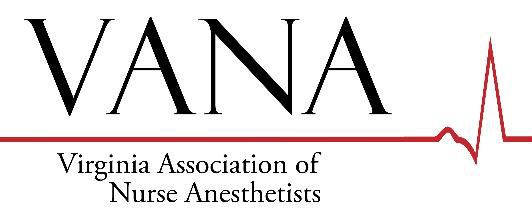Removing barriers to advanced practice nursing opens doors to better healthcare for all
By Angela Mund, DNP, CRNA
As a Certified Registered Nurse Anesthetist (CRNA) and president of the American Association of Nurse Anesthesiology, I proudly represent nearly 59,000 members of one of America’s most trusted professions, according to Gallup: advanced practice nursing.
Advanced practice registered nurses (APRNs), including CRNAs, nurse practitioners, nurse-midwives, and clinical nurse specialists have earned that trust. Americans rely on them for compassionate healthcare services in all settings and geographic areas, especially in rural and underserved community-based facilities.
CRNAs and other APRNs have been trained at the master’s or doctoral level to provide anesthesia and pain management services, treat and diagnose illnesses, advise the public on health issues, manage chronic disease, provide care during pregnancy, childbirth and the postpartum period, order and interpret diagnostic tests, and prescribe medication and non-pharmacologic treatments.
As of 2020, more than 233,000 APRNs treated Medicare patients, and approximately 40% of Medicare beneficiaries received care from an APRN. Despite the critical role that APRNs take on in our healthcare system, some federal statutes and regulations, state practice acts, and institutional rules limit APRN practice.
At a time when communities across the country are facing a shortage of healthcare providers, we must help ensure that everyone who needs access to the high-quality care nurses provide can have it. Unnecessary and redundant laws and regulations that prevent APRNs from practicing to the full extent of their education and clinical training disrupt access to care, increase costs and undermine efforts to improve the quality of care.
Americans rely upon APRNs, and so does America’s healthcare system. That’s why, together with our APRN colleagues and champions in Congress, CRNAs urge the passage of the Improving Care and Access to Nurses (ICAN) Act. This much-needed legislation removes barriers to care and increases access to services provided by APRNs under Medicare and Medicaid.
Recommendations from the experts
Recognizing the importance of APRNs to our healthcare workforce, and for patient access to care, the 2010 Institute of Medicine (IOM) report, “The Future of Nursing: Leading Change, Advancing Health,” called for the removal of laws, regulations and policies that prevent APRNs from practicing to the full scope of their education and training. In 2021, The National Academies of Science, Engineering and Medicine (previously named the IOM) affirmed this position in “The Future of Nursing 2020-2030: Charting a Path to Achieve Health Equity,” which recommended that “all relevant state, federal and private organizations enable nurses to practice to the full extent of their education and training by removing practice barriers that prevent them from more fully addressing social needs and social determinants of health and improve health care access, quality and value.” These recommendations have been echoed by multiple other bipartisan stakeholders such as the American Enterprise Institute, the Brookings Institution, and the Bipartisan Policy Center.
Access to care
Unfortunately, there are still Medicare and Medicaid policies that have not been modernized to reflect the growing and essential role of APRNs. Various federal statutes and regulations remain, preventing APRNs from practicing to the full extent of their education and clinical training.
For example, CRNAs represent more than 80% of the anesthesia providers in rural counties. Rural hospitals and critical access hospitals often rely on independently practicing CRNAs for anesthesia care, enabling those hospitals to provide a wide range of surgical care. Half of U.S. rural hospitals use a CRNA-only model for obstetric care, and CRNAs safely deliver pain management care, particularly where there are no physician providers available, saving patients long drives of 75 miles or more.
Despite their important role in maintaining critical access in communities across the country, CRNAs are hampered by current Medicare restrictions that require physician supervision of CRNAs. This federal requirement creates a barrier to expanding care and worsens the current provider shortage, especially in underserved communities, without improving outcomes.
Looking to the future
The ICAN Act will remove many of the existing barriers between patients and nurses in Medicare and will increase access to care for all Americans. Removing redundant supervision requirements for nurse anesthetists will help to lower healthcare costs in Medicare and Medicaid programs and ensure proper reimbursement for services to maintain the highest standards and quality of care.
Americans relied on APRNs practicing at the top of their scope throughout the COVID-19 public health emergency. For almost three years, we have seen practice barriers removed at the federal level, which has allowed nurses to step up on the front lines of multiple global health challenges. I was inspired to see my fellow CRNAs taking the lead in response to COVID, working to help the sickest patients under the most difficult conditions.
We have seen how much nurses can do when we allow them to reach the full potential of their education and scope of practice. Removing barriers between nurses and our patients is critical for achieving a more compassionate, efficient, affordable and equitable healthcare system for all Americans. This makes it essential that Congress removes barriers to care for APRNs and their patients.
To learn how you support the ICAN Act, visit AnesthesiaFacts.com/TakeAction.
________________________________________
About the author
Angela Mund, DNP, CRNA, is the president of the American Association of Nurse Anesthesiology. Providing diverse and interrelated perspectives of a leader, educator, advocate and clinician, she has testified before state legislative bodies as well as Congress on the important role CRNAs play in providing safe, quality anesthesia care.

